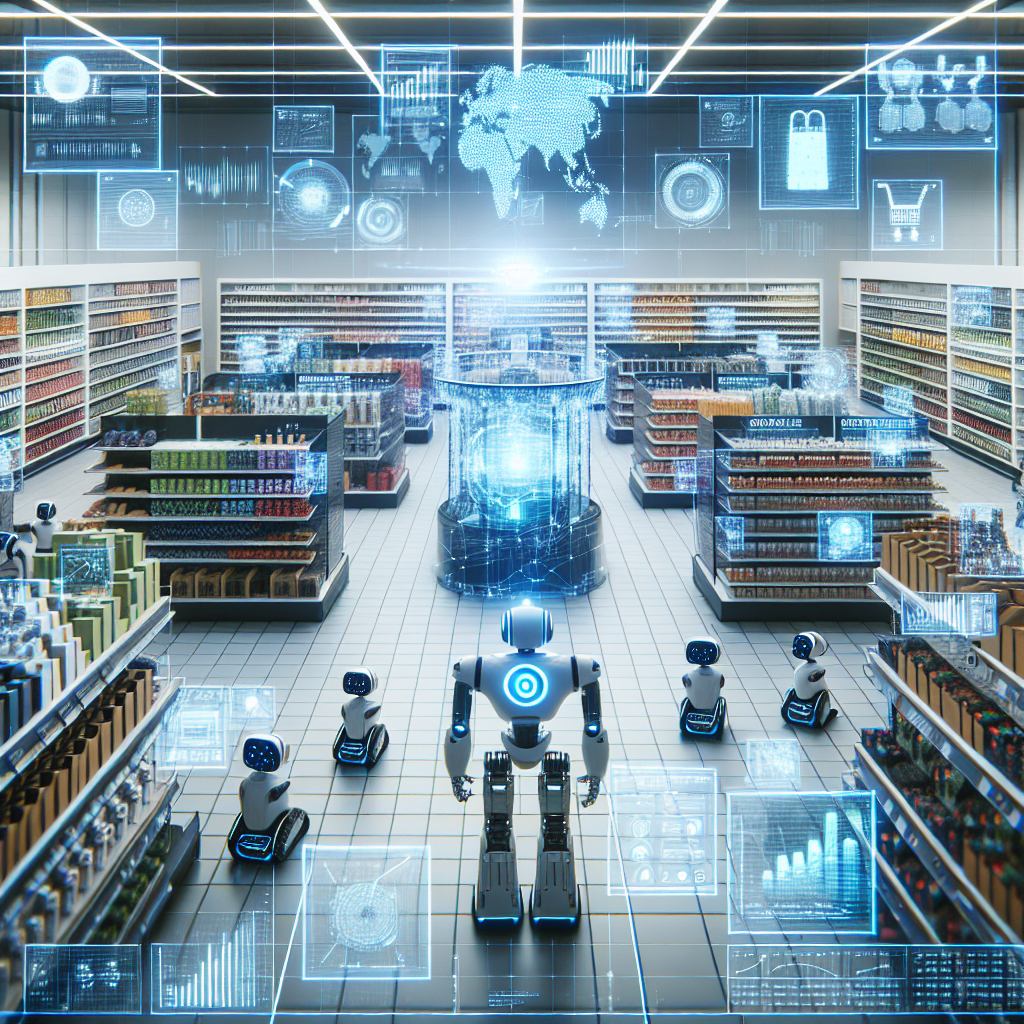The Future of AI in Retail Marketing
Artificial Intelligence (AI) is revolutionizing the retail industry, and its impact on marketing strategies is no exception. With the ability to analyze vast amounts of data, predict consumer behavior, personalize marketing campaigns, and automate processes, AI is transforming the way retailers engage with customers and drive sales. In this article, we will explore the future of AI in retail marketing and the opportunities it presents for businesses looking to stay ahead of the competition.
AI-Powered Personalization
One of the key ways AI is transforming retail marketing is through personalized experiences for customers. AI algorithms can analyze customer data in real-time to create personalized recommendations, offers, and messaging tailored to individual preferences and behavior. This level of personalization can significantly increase customer engagement, loyalty, and ultimately drive sales.
For example, AI-powered recommendation engines can analyze a customer’s browsing and purchase history to suggest products they are likely to be interested in. These recommendations can be displayed on a retailer’s website, in email campaigns, or through targeted advertising on social media. By delivering relevant content to customers, retailers can increase conversion rates and drive repeat purchases.
AI also enables retailers to personalize marketing campaigns based on customer behavior and preferences. For example, AI algorithms can analyze email open rates, click-through rates, and purchase history to segment customers into different groups and send targeted messaging to each segment. This level of personalization can increase the effectiveness of marketing campaigns and drive higher ROI.
Predictive Analytics
AI-powered predictive analytics is another game-changer for retail marketing. By analyzing historical data and trends, AI algorithms can predict future consumer behavior, market trends, and sales patterns. This insight allows retailers to anticipate customer needs, optimize inventory management, and make data-driven decisions to drive sales and profitability.
For example, AI-powered demand forecasting can help retailers predict which products will be in high demand during specific times of the year. This insight can inform inventory purchasing decisions, pricing strategies, and marketing campaigns to maximize sales and minimize stockouts. By leveraging predictive analytics, retailers can stay ahead of the competition and deliver a seamless shopping experience to customers.
Chatbots and Virtual Assistants
AI-powered chatbots and virtual assistants are revolutionizing customer service in the retail industry. These intelligent bots can answer customer inquiries, provide product recommendations, process orders, and even handle returns and exchanges. By automating these tasks, retailers can provide 24/7 customer support, reduce response times, and improve the overall shopping experience for customers.
Chatbots and virtual assistants can also be used for marketing purposes, such as delivering personalized product recommendations, promoting special offers, and collecting customer feedback. By engaging with customers in real-time through messaging platforms, retailers can increase customer engagement, drive sales, and build brand loyalty.
FAQs
Q: How can retailers get started with AI in marketing?
A: Retailers can start by identifying their marketing goals and objectives, then exploring AI solutions that align with those goals. It’s important to work with a trusted AI provider who understands the retail industry and can tailor solutions to meet specific needs.
Q: What are the benefits of AI in retail marketing?
A: AI can help retailers improve customer engagement, drive sales, optimize marketing campaigns, and stay ahead of the competition. By leveraging AI-powered tools and technologies, retailers can deliver personalized experiences, predict consumer behavior, and automate processes to drive business growth.
Q: How can AI help retailers personalize marketing campaigns?
A: AI algorithms can analyze customer data to create personalized recommendations, offers, and messaging tailored to individual preferences and behavior. By delivering relevant content to customers, retailers can increase conversion rates, drive repeat purchases, and build brand loyalty.
Q: What is the future of AI in retail marketing?
A: The future of AI in retail marketing is bright, with continued advancements in technology and innovation. Retailers will increasingly rely on AI-powered tools and technologies to drive sales, enhance customer experiences, and stay ahead of the competition. By embracing AI, retailers can unlock new opportunities for growth and success in the dynamic retail landscape.
In conclusion, AI is transforming retail marketing in profound ways, from personalized experiences and predictive analytics to chatbots and virtual assistants. By leveraging AI-powered tools and technologies, retailers can drive sales, improve customer engagement, and stay ahead of the competition in the ever-evolving retail landscape. The future of AI in retail marketing is bright, with endless possibilities for innovation and growth.

